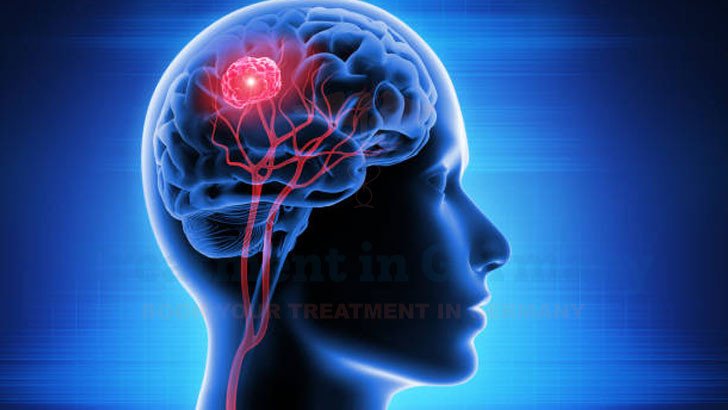
Glioblastoma is one of the most aggressive and challenging brain tumors to treat. For many patients, standard therapies such as surgery, radiation, and chemotherapy provide limited results and often come with significant side effects. However, a promising alternative is emerging in the form of dendritic cell therapy a personalized, immune-based approach now available at the clinic of Professor Dr. Frank Gansauge in Berg, Germany. Germany has become a global leader in this innovative field, offering state-of-the-art laboratories and highly experienced physicians who specialize in immunotherapy. At the heart of this development is Prof. Gansauge, whose clinic is providing new options to patients diagnosed with glioblastoma, one of the most difficult cancers to manage.
What Is Dendritic Cell Therapy?
Dendritic cell therapy in Germany is an advanced form of cancer immunotherapy that uses the patient’s own immune system to recognize and destroy cancer cells. Dendritic cells are a type of immune cell responsible for identifying abnormal or dangerous cells in the body. They gather information from cancer cells small protein fragments called antigens and present it to T-cells, which are responsible for carrying out the immune response.
The therapy begins with a simple blood draw. Dendritic cells are isolated from the blood and then trained in the lab using tumor-specific proteins. When reintroduced into the patient’s body, these “educated” cells help the immune system seek out and attack glioblastoma cells with greater precision.
This treatment in Germany is gaining international recognition, not only for its scientific basis but also for its potential to extend survival and improve quality of life especially for cancers like glioblastoma, where options are limited.
Why Dendritic Cells Are So Powerful Against Glioblastoma
What sets dendritic cells apart is their ability to activate thousands of T-cells and generate long-term immune memory. This means that even after the treatment cycle ends, the immune system may continue to recognize and fight cancer cells if they reappear.
For glioblastoma, this is particularly valuable. Due to the tumor’s ability to invade healthy brain tissue and its tendency to recur after surgery, having a systemic defense mechanism like this can make a critical difference.
Treatment at Professor Gansauge’s Clinic in Berg
Prof. Dr. Frank Gansauge based in Berg Germany leads a dedicated team specializing in personalized dendritic cell therapy. With decades of expertise in surgical oncology and immunological research, Prof. Gansauge has developed a reputation for precision and compassion in patient care.
Each treatment is tailored to the individual there is no one-size-fits-all protocol. The therapy is designed based on the patient's immune status, the specific characteristics of their glioblastoma, and how their body responds over time. His clinic uses refined laboratory techniques for antigen loading and immune monitoring, ensuring both safety and maximum efficacy.
Patients under Prof. Gansauge’s care benefit from his holistic and scientifically grounded approach, often experiencing fewer side effects and maintaining a higher quality of life during therapy.
Why International Patients Are Choosing Treatment in Germany
Dendritic cell therapy in Germany is not only medically advanced but also logistically accessible. Many international patients choose Treatment in Germany for cancer treatment because of the country’s well-organized healthcare infrastructure, multilingual support, and strong focus on patient-centered care.
At approximately €24,000 for a complete therapy cycle, the cost includes consultation, diagnostics, cell preparation, treatment organization, and follow-up. While this might appear high, it is often more affordable in the long run when compared to the cumulative expenses of standard treatments, extended hospital stays, and managing side effects.
Medical travel coordinators also support patients with visa assistance, accommodation, and translation services, making the journey smoother for families arriving from abroad.
How It Compares to Traditional Cancer Treatments
Traditional glioblastoma treatment in Germany usually involves surgery followed by radiation and chemotherapy. These methods aim to reduce tumor size and slow progression, but they rarely eliminate all cancer cells and often come with considerable physical and cognitive side effects.
Dendritic cell therapy works differently. Instead of attacking everything indiscriminately, it trains the body to selectively fight cancer. This results in fewer side effects and opens the possibility of combining it with other therapies, including radiation or even surgery, for enhanced effectiveness.
The Future of Glioblastoma Treatment
Ongoing research in Germany continues to refine dendritic cell therapy, with promising developments in cell processing speed, tumor profiling, and therapeutic combinations. Scientists are exploring how to integrate dendritic cells with checkpoint inhibitors and targeted drugs for even greater impact.
At the forefront of this progress is Prof. Gansauge and his team. Their work is not only treating patients today but also shaping what will become the standard of care tomorrow.
🌍Why Patients Worldwide Prefer Our Medical Services in Germany – Key Benefits Explained:
1. How much does dendritic cell therapy for glioblastoma cost in Germany?
The cost of dendritic cell therapy for glioblastoma in Germany is approximately 24,000 euros.
2. How long does dendritic cell therapy take for GBM patients?
The complete treatment cycle usually spans 9 days. This includes around 7 days of laboratory work to prepare the personalized dendritic cells.
3. Is dendritic cell therapy suitable for glioblastoma?
Yes, dendritic cell therapy has shown promise in treating glioblastoma multiforme (GBM). While it is not considered a cure, it can stimulate the immune system to recognize and attack glioblastoma cells more effectively.
4. How soon can treatment begin after consultation?
Patients are typically able to start therapy within 1 to 2 weeks.
5. Can dendritic cell therapy cure glioblastoma?
Glioblastoma is a highly aggressive cancer, and there is currently no definitive cure. However, dendritic cell therapy may prolong survival, enhance quality of life, and in some cases, achieve partial or temporary remission. It is considered a valuable addition to the treatment plan for eligible patients.
Kindly complete the form below, and our dedicated team will reach out to you promptly. We look forward to connecting with you soon!
Trierer Straße, 56072 Koblenz, Germany
.webp)
.webp)
 (1).webp)
 (1).webp)

.webp)
.webp)
 (1).webp)
 (1).webp)
